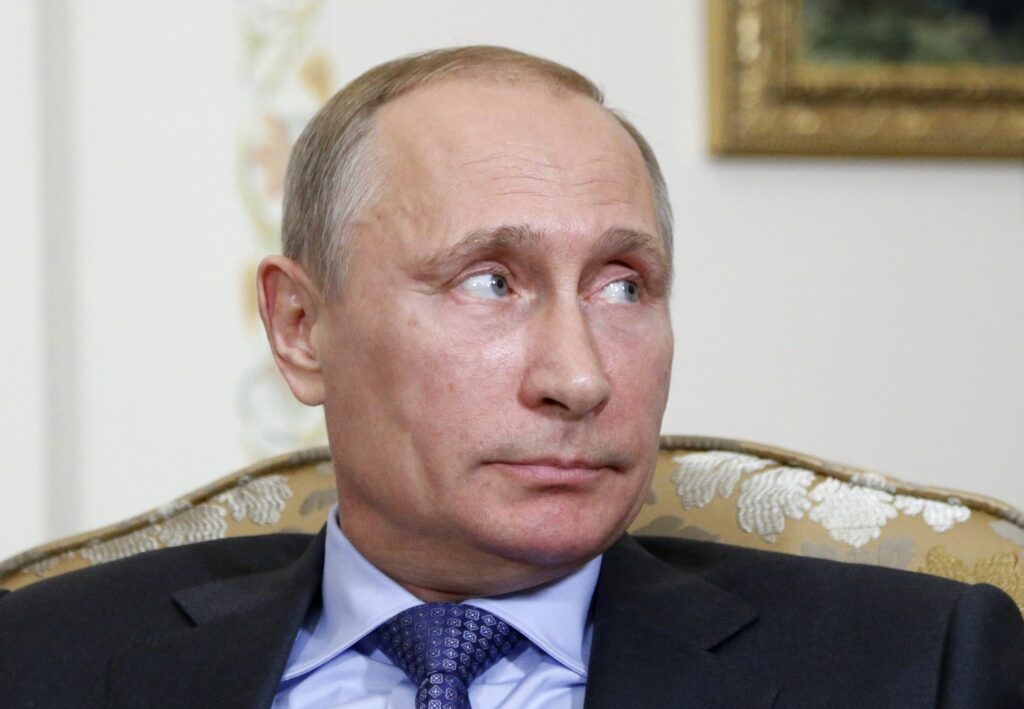Nearly 10 years ago, in December 2012, Vladimir Putin took to the podium at the European Commission's Brussels headquarters as Russian Prime Minister for a theatrical summit already dominated by his hold on the gas valves powering Europe.
The Russian President will again be dominating procedures when European leaders gather in Versailles on Thursday for pre-arranged talks. Discussion will be shaped by the urgent need to soothe a war-torn Ukraine sensing EU and NATO abandon, and free homes and businesses from the icy grip of his energy control.
This week's 'informal' summit, pre-planned by French President Emmanuel Macron who will be hoping to present himself as the frontrunner in France's elections next month, suddenly calls for dramatic political action that will test the resolve of leaders.
'Buffer zone'
Two key topics will be on the table on Thursday: Ukraine's demand for a "fast-track" towards EU membership; and revising the fundamentals of EU energy supply.
The first is relatively straightforward, although experts worry that it "might backfire" amid excessively high expectations, to quote one senior insider. The second is costly and unpredictable, as war redefines the original economic discussion.
This Tuesday in the Strasbourg headquarters, the Commission's top team will set out how a transition towards energy self-sufficiency could be achieved, and a measure of equilibrium along the way.
Related News
- Brussels Behind the Scenes: Macron's moment
- Nuclear phase-out: Ukraine crisis raises new questions
- Russia says it is still delivering gas to Europe, via Ukraine
Executive Vice-President Frans Timmermans and Energy Commissioner Kadri Simson pitch what the EU's best minds reckon is the route to a "more affordable, secure and sustainable" energy landscape at around 15:30 CET to national leaders.
Commission President Ursula Von Der Leyen, back at her Berlaymont base after a whirlwind tour of key capitals, started the sales pitch on Monday when meeting with former European Central Bank President Mario Draghi.
"We have to get rid of the dependency on Russian gas, oil and coal," said Von Der Leyen, in laying down the breadth of the challenge faced. To begin with, that means a "diversification of supply away from Russia and towards reliable suppliers", whether American, Norwegian or British.
"This is mainly LNG (liquified natural gas) and pipeline gas. Both have the advantage that the infrastructure is over time hydrogen-compatible," she said.
'Massive investment'
But the drive to "repower the European Union," as she framed it, means "massive investment in renewables, like solar, wind and hydrogen."
The gains from "improved energy efficiency: from the renovation of buildings to smart industrial processes to artificial intelligence" will come at a cost.
And before any of that kicks in meaningfully, there will be the monumental burden that is "the protection of consumers" already reeling from structurally-high inflation after two years of crisis pandemic response.
Shielding the "most vulnerable" and plugging the gap until the "massive investment" needed in renewable transforms the energy mix and whittles down bedrock shares of oil, gas and coal.

